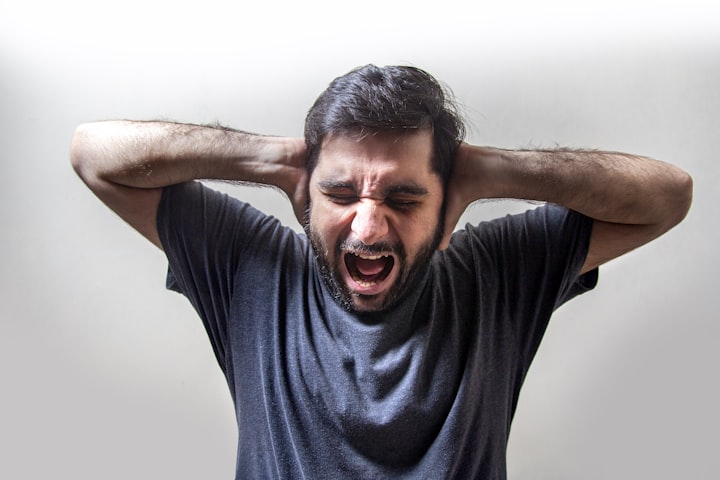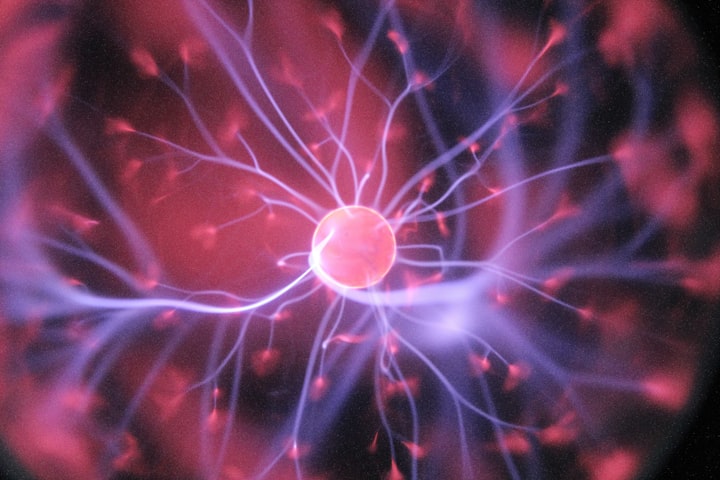Are You Experiencing Anxiety?
Lavender balances you

Signs of anxiety:
Exaggerated worries - manifested almost throughout the day, for the smallest problems. Restless thoughts arise, several days a week, more than six months. Agitation and nervousness persist throughout the day and unexplained fatigue occurs.
Sleep problems are real when you can't put your eyelids on your eyelids for several nights in a row of worries, restlessness, and agitation, without necessarily having a very important reason, if you think cold.
Then it may be an anxiety disorder. In fact, about half of people with generalized anxiety disorder suffer from sleep disorders.
Irrational fears - In some cases, anxiety is not generalized, but occurs in specific situations - when traveling by plane, when confronted with an animal, when arriving in crowded spaces, etc.
If the somewhat normal fears in some situations take on enormous proportions and you feel like you are falling apart, if you can no longer carry out your normal activities because of these fears, it is clear that you suffer from a phobia. Phobias, in turn, are a form of anxiety disorder.
Muscle tension - Almost constant muscle tension - whether it's clenching your jaw, clenching your fists, or straining your leg muscles, for example - is another clear sign of an anxiety disorder.
Digestive Disorders - Even if the anxiety starts from the mind, it often affects the whole body and is also manifested by physical symptoms. Persistent digestive problems most often occur.
Irritable bowel syndrome - abdominal pain, cramps, bloating, gas, constipation and/or diarrhea - "is basically digestive tract anxiety," says Winston.
Fear of public speaking or giving a presentation - occurs in oral exams, in employment. Anxiety manifests itself a few weeks or days before, nothing makes you confident, there is trembling, sweating, anxiety.
Panic - Panic attacks are really scary for both those who experience them and those around them. It means a sudden feeling of fear, helplessness that lasts for several minutes, accompanied by physical manifestations that lead to the thought of heart attack: difficulty breathing, heartbeat, agitation, numb hands, profuse sweating, dizziness, chest pain and stomach, a strong feeling of cold or heat.
Of course, having a panic attack does not mean that you are suffering from an anxiety disorder. However, people who suffer from such episodes repeatedly should consult a specialist.
Distrust of oneself and one's actions - An anxious person is always overwhelmed by doubts, is never sure of a decision made and is almost never able to make a decision. Perfectionists are always dissatisfied with themselves and their actions.
Reliving Traumatic Episodes - Whether it's the loss of a loved one or an unpleasant event, the intense reliving of these episodes is a manifestation of post-traumatic stress disorder, a disorder that shares some of the characteristics of anxiety disorders.
How does anxiety manifest itself in the body? - such manifestations help you to recognize the anxious disorders: pallor of the face, tense facial expressions, mydriasis, dry mouth, sweating waves, fine tremor of the extremities, tachycardia, extrasystoles, precordial embarrassment, anorexia, abdominal cramps, diarrhea, tachypnea, constriction chest pain, frequent and frequent urination, insomnia, high blood pressure, hyperglycemia, and hyperlipemia.
Lavender has been used as a medicinal plant since ancient times, but the therapeutic properties of the essential oil extracted from this plant were discovered in the early twentieth century. Thousands of tons of lavender are used to extract essential oil by distillation or dried in well-ventilated rooms.
More than 40 components have been identified in the composition of the plant that cannot be obtained by the synthesis in the laboratory. The composition of the plant includes olefinic alcohol, acetic acid, tannin, and bitter principles, which give lavender healing properties for more than 70 diseases.
Lavender has valuable therapeutic properties: anxiolytic, choleretic-cholagogues, antiseptic, diuretic, relaxing, and anxiolytic. Lavender preparations (infusion and tincture) are very helpful in case of biliary dyskinesia, bloating, or migraines; tincture and volatile oil are indicated in neurosis and mental overload.
Equally effective is internal therapy with infusions, with volatile oil and honey in respiratory diseases (flu, bronchitis, or whooping cough) associated with external treatment: inhalations are made with lavender oil mixed with warm water. In urinary tract diseases (colic, cystitis) are indicated tincture and volatile oil, associated with hot sitting baths.
Treats nervous system disorders
Therapies with lavender preparations have calming properties and are indicated in states of neurasthenia and hysteria, in conditions caused by tense situations, but also by stress, melancholy, or anxiety.
In such cases, lavender is used as a dry powder by grinding the plant with a coffee grinder. The obtained dust is kept in an airtight jar. It is administered sublingually, the cure lasts 21 days.
It induces a restful sleep
In therapy that combats nervous agitation and insomnia, infusions are recommended, prepared from two teaspoons of dried lavender flowers that are left for ten minutes in 250 ml of boiling water. Drink two or three teas a day, sweetened with a little honey.
In the case of strong emotions, accompanied by muscle tension, stiffness of the shoulders and throat, followed by insomnia, a warm bath is indicated, in which a concentrated infusion of lavender is added.
The tea is made from four tablespoons of the plant and 500 ml of water, which is boiled for five minutes. Drink a cup of tea daily, sweetened with a teaspoon of honey, after each main meal, and the cure has strong relaxing effects. Lavender tincture is also popular in treating chronic insomnia.
The medicine can also be prepared at home, from 100 g of dried flowers which are soaked in 500 ml of rye alcohol for 14 days. Then pour into airtight bottles and store them in a dark place. It is administered 4 teaspoons a day (one teaspoon is diluted in 100 ml of boiled and cooled water) or used in the form of compresses applied to the temples, in case of depressed or stressed people.
Regulates liver function
Over time, alcohol-diluted lavender oil compresses have proven to be remarkably effective in improving liver and gallbladder function. For compresses, prepare a mixture of two parts lavender oil and one part alcohol, with which a cloth is sprayed and applied to the liver 20 days a month.
At the same time, these compresses are also effective in relieving abdominal cramps and bloating.
Slightly soothing in heart conditions
Due to its sedative properties, volatile lavender oil is used to massage the chest and left arm along its entire length. In this case, the maneuvers must be performed by competent persons, who must act gently. Treatment normalizes heart function and blood pressure.





Comments
There are no comments for this story
Be the first to respond and start the conversation.